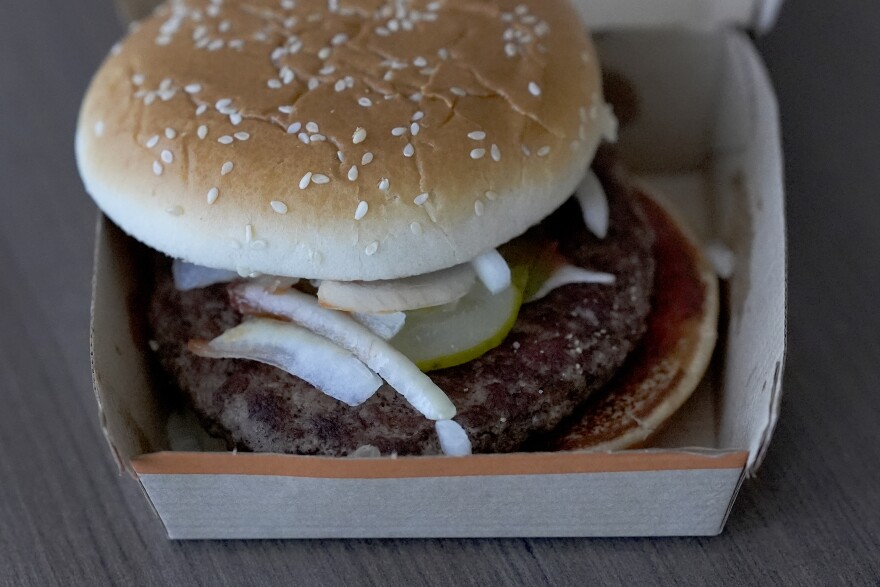BETHLEHEM. Pa. — After an E.coli outbreak has been linked to McDonald’s quarter pounders, specifically the onions on the burger, a local infectious disease expert is weighing in on what to know about food safety.
To date, one person has died and 75 others have been infected by E.coli after eating McDonald’s quarter pounders, according to the U.S. Centers for Disease Control and Prevention.
The company now is pulling beef patties in some states and onion slivers in others to identify the source of the outbreak.
All of the states where people have fallen ill are in the Midwest and western parts of the country.
The E.coli outbreak comes on the heels of another foodborne illness outbreak during the summer.
The nation struggled with a listeria outbreak linked to Boar's Head deli meats. That issue led to the closure of one of the company’s meat plants.
"E.coli is a common bacteria in the human intestine and also in the intestine of many, many animals,” said Dr. Luther Rhodes, an infectious disease specialist with Lehigh Valley Health Network.
"Farm animals contaminate pastures. Rainwater runs off and brings E.coli into streams and ends up somehow in the process of gathering water to, say, wash vegetables or clean vegetables and so on, it can be contaminated."
Signs and symptoms
Rhodes said although there have been no reports of E.coli affecting Pennsylvania, it’s important to stay vigilant of the signs and symptoms.
He said the signs of an E.coli infection, which is food poisoning, include nausea, vomiting and abdominal pain. The incubation period for some bacteria, including E.coli is two to four days.
"If someone feels they've had food poisoning, the first thing they should do is call their doctor."Dr. Luther Rhodes, infectious disease specialist, Lehigh Valley Health Network
"If someone feels they've had food poisoning, the first thing they should do is call their doctor," Rhodes said.
"And they can also feel free to notify their local public health officials and say they have a concern or they were diagnosed as having food poisoning.”
He said people who believe they are infected should make a list of all of the food they’ve eaten over the last week to pinpoint the culprit.
Taking precaution
It’s important to shop at reputable grocery stores and be careful of cross-contamination foods, Rhodes said.
"You want to shop at a place that you have confidence in, that you have seen from your own experience that they're pretty clean and careful about how they handle food,” he said.
“It's important to be very meticulous about the handling of poultry, fish meats and their juices, so they don't contaminate other products or contaminate ready-to-eat products."
"What is a minimal contamination at 8 in the morning is grossly contaminated by 5 in the afternoon.”Dr. Luther Rhodes, an infectious disease specialist with Lehigh Valley Health Network
He also said people need to be aware of how long they leave food out so that it does not become a threat.
"E.coli, like other bacteria, will grow exponentially,” he said. “It'll grow very rapidly at room temperature, somewhere between 40 degrees and 100 degrees, anywhere in between there.
"What is a minimal contamination at 8 in the morning is grossly contaminated by 5 in the afternoon.”
Rhodes said other bacteria, such as listeria, can survive in cooler temperatures, so it’s important to pay attention to food, its expiration, and where it comes from.


